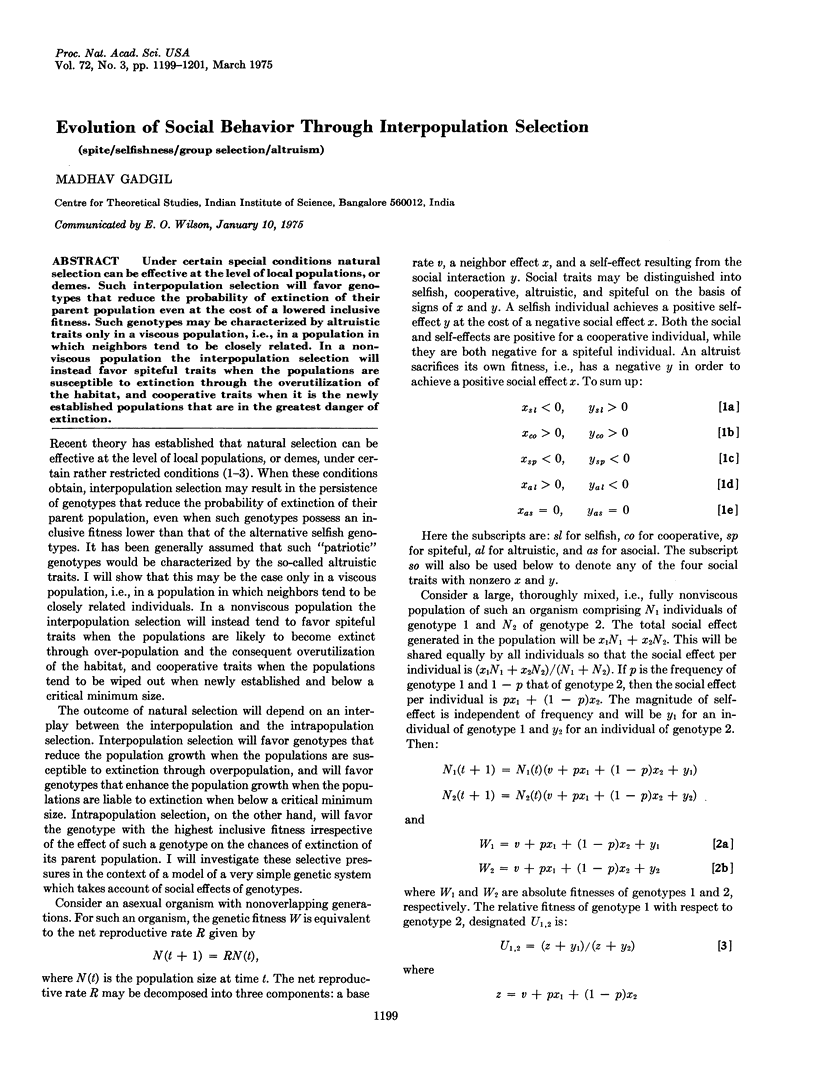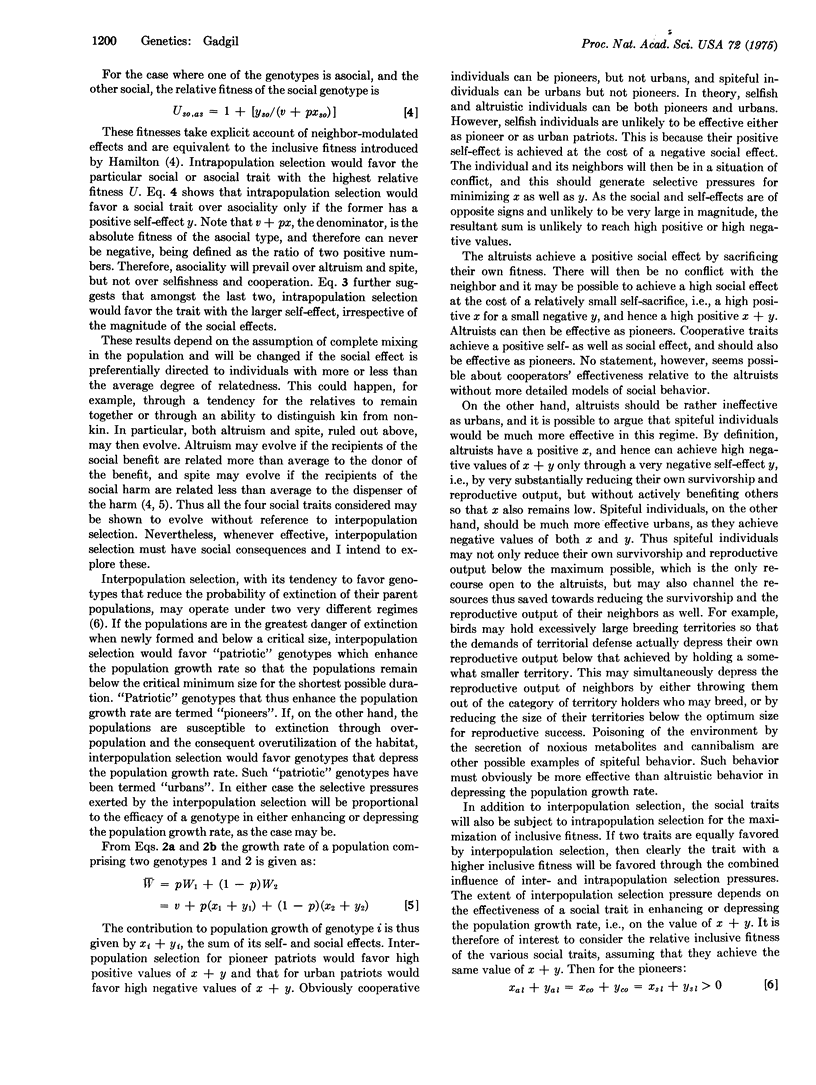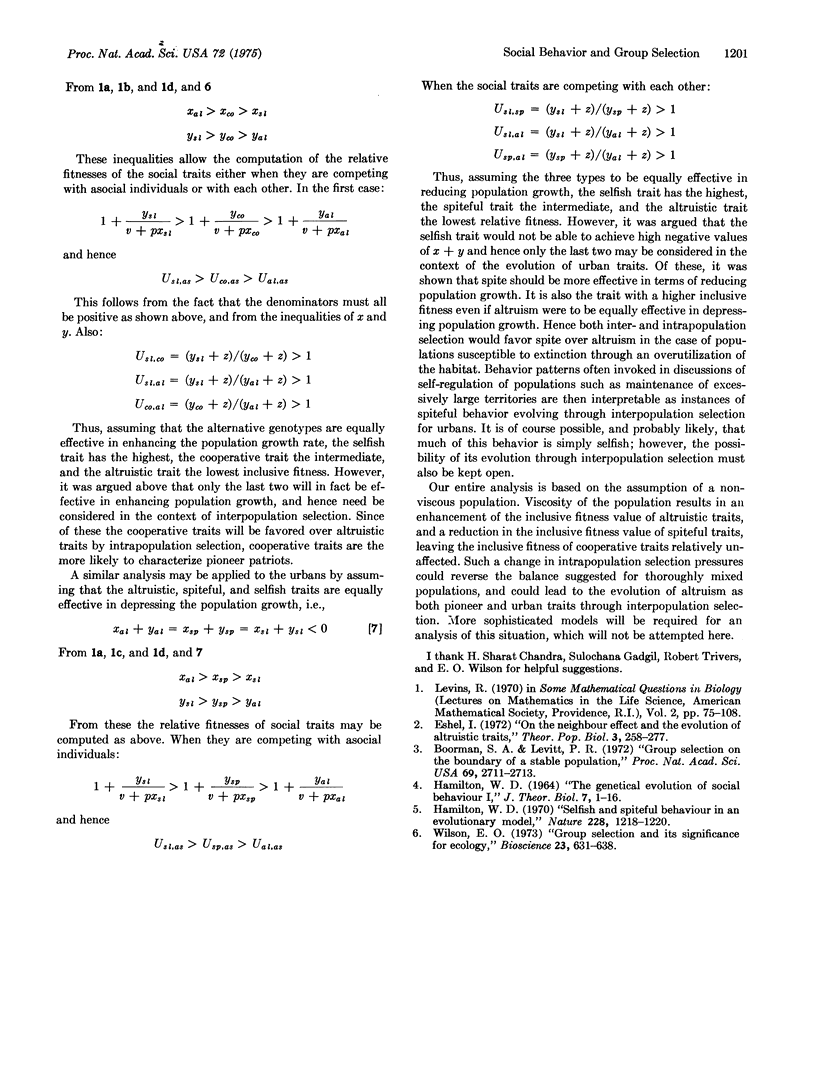Abstract
Under certain special conditions natural selection can be effective at the level of local populations, or demes. Such interpopulation selection will favor genotypes that reduce the probability of extinction of their parent population even at the cost of a lowered inclusive fitness. Such genotypes may be characterized by altruistic traits only in a viscous population, i.e., in a population in which neighbors tend to be closely related. In a non-viscous population the interpopulation selection will instead favor spiteful traits when the populations are susceptible to extinction through the overutilization of the habitat, and cooperative traits when it is the newly established populations that are in the greatest danger of extinction.
Keywords: spite, selfishness, group selection, altruism
Full text
PDF


Selected References
These references are in PubMed. This may not be the complete list of references from this article.
- Boorman S. A., Levitt P. R. Group selection on the boundary of a stable population. Proc Natl Acad Sci U S A. 1972 Sep;69(9):2711–2713. doi: 10.1073/pnas.69.9.2711. [DOI] [PMC free article] [PubMed] [Google Scholar]
- Eshel I. On the neighbor effect and the evolution of altruistic traits. Theor Popul Biol. 1972 Sep;3(3):258–277. doi: 10.1016/0040-5809(72)90003-2. [DOI] [PubMed] [Google Scholar]
- Hamilton W. D. Selfish and spiteful behaviour in an evolutionary model. Nature. 1970 Dec 19;228(5277):1218–1220. doi: 10.1038/2281218a0. [DOI] [PubMed] [Google Scholar]
- Hamilton W. D. The genetical evolution of social behaviour. I. J Theor Biol. 1964 Jul;7(1):1–16. doi: 10.1016/0022-5193(64)90038-4. [DOI] [PubMed] [Google Scholar]


